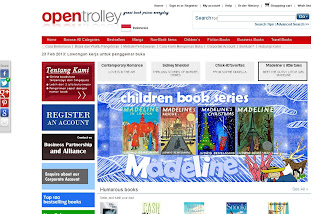Clarissa is the heroine of Mrs. Dalloway, and she was in her
middle age. At this stage of life, she began questioning her past decision to
leave her ex-boyfriend Peter Walsh and married Richard Dalloway. I think
Clarissa and Peter should have been made a good couple; they loved each other,
and they understood each other very well. Often in their meetings, they knew
what the other was thinking before they really said it. However, Clarissa was
so afraid of uncertainty, that she finally chose Richard Dalloway who was more
mature and settled than Peter.
Other reason why Clarissa left Peter, was because Clarissa
didn’t like to be scrutinized by him. I think the thought of her boyfriend could
read her mind and knew her too much had annoyed her. Clarissa seemed to be
always hiding most of her feeling from public. She always wanted to be seen
ladylike and quite descent in her high-class society. She was so afraid that
she looked too old or too unfit for it (that’s why she was very sensitive to
Peter’s unspoken critics).
And in the middle of that fuss, Clarissa never thought about
the true meaning of life. She just flowed with it, and enjoyed it. When she
held a dinner party, for example, it’s just that she wanted to host a party, no
other (more important) reason. She bought flowers for that occasion to feel
younger and fresher. She was irritated when Richard was invited to a lady’s
lunch without her—not that she was jealous I think—but because the lady did not
appreciate her much to invite her. So, how people regarded her was the most
important thing for Clarissa Dalloway.
In the end I think Clarissa began to think deeper than the
only what in the surface. By beginning to reasoning her marrying to Richard, I
think she began to see how she had prioritized status than love; the surface
than what’s in the inside. And finally, Clarissa was forced to realize the
mortality of human’s life. She was tried to be indifferent to it, blaming the
young man’s death as reducing her party’s festivity, but in the end she must
have realized that she too must think about it more seriously than just the
glamour and glitters of the flowers, fashion and parties.
That is my Character Thursday of this week, an analysis of
book character of my choice, who is yours?... Just put your post URL in the
linky below. Do you like to join us in discussing characters from books you
read? See the details of Character Thursday first.





























